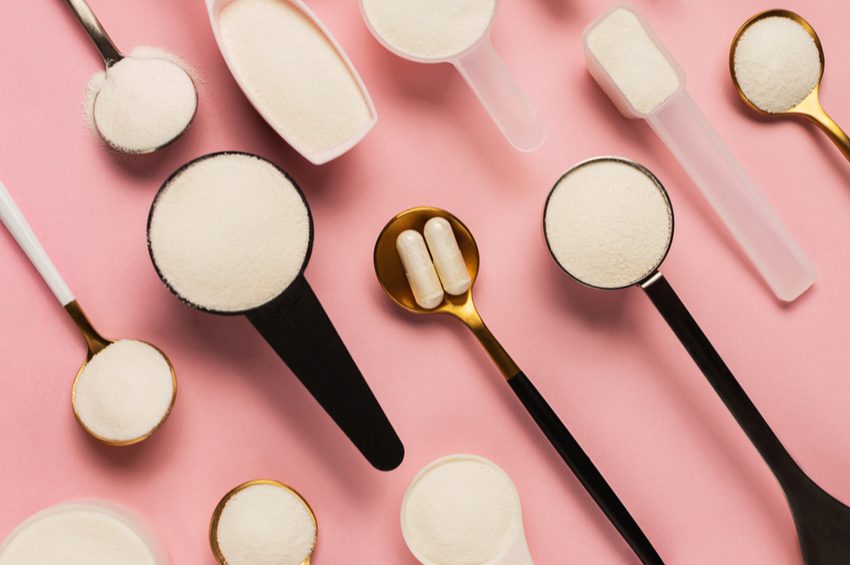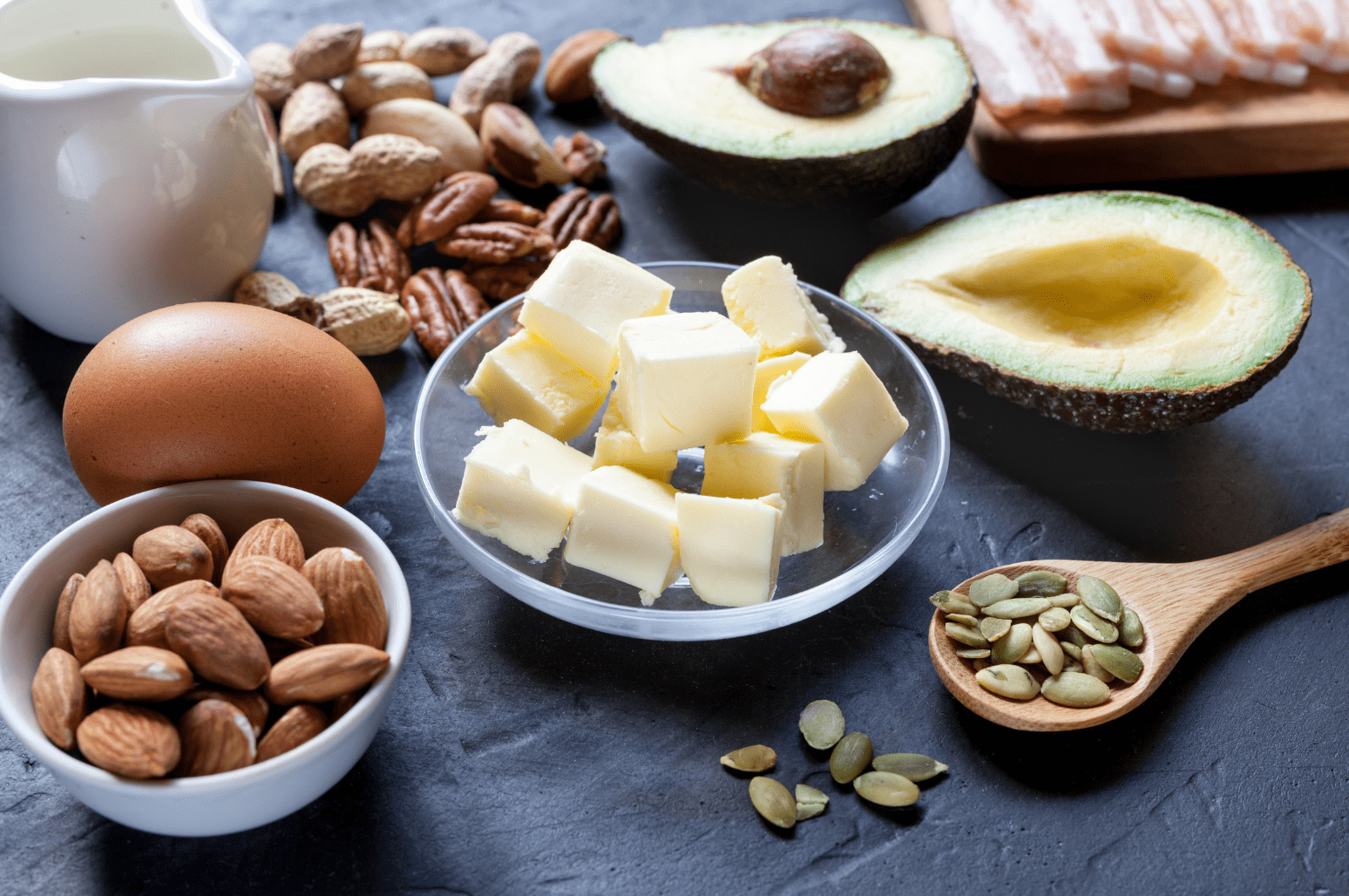
Coffee is a staple in those early morning hours, but it doesn’t carry much in the way of nutritional benefits. Apart from the caffeine intake, you might be wondering whether coffee has any benefit at all. In fact, you may want to supplement your coffee with add-ins like collagen peptides. Should you put collagen in your coffee?
Before you spend money on expensive supplements, you should know whether you will really get any benefit from them. Here is what you need to know about adding collagen to your morning cup of java.
Why Add Collagen to Your Coffee?
Maybe you are wondering what collagen actually does for your body and why you would want to add it to coffee. Collagen is an all-around great supplement to incorporate into your keto diet as it improves the health of several body systems.
First and foremost, the amino acids in collagen promote better gut health. According to studies, an incredible 93 percent of those who took collagen supplementation had reduced symptoms of digestive issues, including bloating. [1] If you have been experiencing mild digestive upset or any issues like bloating, you may want to supplement with collagen.
Other benefits of collagen intake include healthier skin, hair, and nails. It can also make joints less prone to aches and pains. [2]
Plus, it’s important to note that coffee itself has some nutritional benefits. Not only is coffee keto-friendly, but according to the Harvard School of Public Health, moderate coffee intake (think two to five cups daily) reduces the risk of type 2 diabetes, certain cancers, and even mental health conditions like depression. [3]
Should You Put Collagen in Your Coffee?
While there are many benefits to consuming more collagen, the question remains of where you should add these supplements to your diet. Coffee, a morning staple for most people, might seem like an obvious choice. It kick starts your day with caffeine and can even pack a nutritional punch in the form of a high-quality collagen supplement.
So should you put collagen supplements in your coffee?

Let’s consider the question from a taste standpoint first. Collagen powders and supplements tend to be rather neutral in flavor. This allows them to be added to many foods with little to no taste difference, making it perfect to supplement your morning coffee without sacrificing flavor.
More importantly, you should consider whether collagen in your coffee actually helps. The main issue here is that collagen can be affected by high temperatures. When exposed to these higher temperatures, the proteins in collagen can break down.
It won’t hurt you to consume collagen if it has broken down, but it won’t provide any of the real benefits of a collagen supplement either.
Knowing what temperature you make your coffee at is important to determine if the breakdown of the protein will occur. In one study, collagen was marked to begin breaking down around 302°F. [4] This indicates that collagen may not be beneficial added to foods that go in the oven, but what does it say about coffee?
According to the National Coffee Association, the good news is coffee is typically brewed between 195°F and 205°F. [5] They also note that brewing your coffee at any temperature higher than this causes a decrease in the taste of the coffee. So yes, go ahead and add collagen to your coffee if you’d like to start taking this supplement, as long as your coffee is not unusually hot.
How to Add Collagen to Coffee

The most important thing about supplementing your coffee with collagen is to monitor the overall temperature of your cup of joe. As long as your coffee measures within the normal range for most coffee drinks (195°F to 205°F), you can go ahead and add a scoop of collagen protein to your cup once it has finished brewing.
Keep in mind that collagen won’t automatically dissolve into your coffee. You will need to stir it as thoroughly as possible to ensure that you don’t take a huge mouthful of collagen powder when drinking your coffee. Alternatively, you can use a milk frother to blend the collagen into your drink quickly and easily.
You may even find several collagen supplements that are designed to taste like coffee creamer, giving you the flavor of your favorite coffee without the sugar and other additives often added to creamer.
Butter coffee also goes well with added collagen peptides to enhance the nutritional benefits.
Make the Most of Your Morning Coffee
Coffee is a great place to supplement your diet with collagen and start reaping the benefits for your gut health, hair, skin, nails, and joints. As long as your coffee isn’t too hot when you prepare it, collagen should dissolve easily and should not break down until you are digesting it. A single scoop should be sufficient and may even taste like a creamer for your coffee.
Try out adding collagen to your coffee today and see how it can supplement your keto diet!
References
Abrahams, M., O'Grady, R., & Prawitt, J. (2022). Effect of a Daily Collagen Peptide Supplement on Digestive Symptoms in Healthy Women: 2-Phase Mixed Methods Study. JMIR formative research, 6(5), e36339. https://doi.org/10.2196/36339
Callahan, A. (2018, August 24). Do collagen supplements help skin, hair, nails and joints?. The New York Times. https://www.nytimes.com/2018/08/24/well/live/do-collagen-supplements-help-skin-hair-nails-and-joints.html
Harvard School of Public Health. (2021, April 9). Is coffee good or bad for your health? https://www.hsph.harvard.edu/news/hsph-in-the-news/is-coffee-good-or-bad-for-your-health/
Bozec, L., & Odlyha, M. (2011). Thermal denaturation studies of collagen by microthermal analysis and atomic force microscopy. Biophysical journal, 101(1), 228–236. https://doi.org/10.1016/j.bpj.2011.04.033
National Coffee Association. (n.d.). How to brew coffee. https://www.ncausa.org/about-coffee/how-to-brew-coffee









